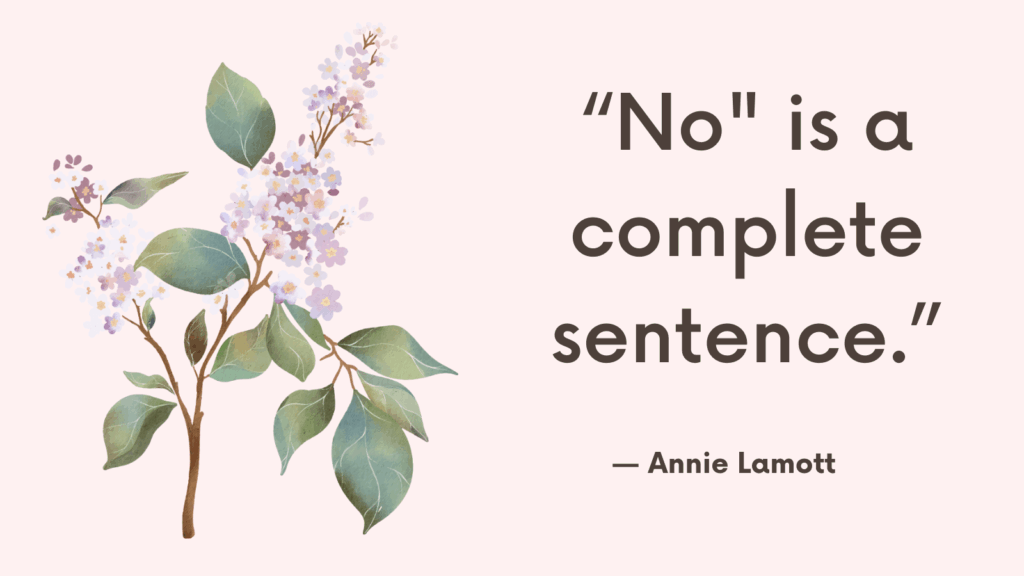Money and relationships don’t always mix well—especially when expectations are unclear or unspoken. Whether it’s a sibling who always asks to borrow cash, a friend who expects you to split expensive outings, or family guilt around shared expenses, setting financial boundaries is essential for your peace of mind and long-term stability. Here’s how to protect your finances without damaging the relationship.
Why Money Conversations Feel So Emotionally Charged?
Talking about money is rarely just about numbers — especially when it involves people you love. Conversations around financial boundaries can stir up discomfort, shame, guilt, fear of judgment, or even fear of rejection. For many, setting limits with money feels less like drawing a line and more like risking the relationship.
1. Money Is Tied to Identity and Worth
How we give, spend, or save money is often tied to how we see ourselves — generous, responsible, loyal, successful. When you say “no” to a request, it can feel like you’re betraying those parts of your identity, or others may accuse you of changing, being selfish, or “forgetting where you came from.”
2. Family and Cultural Expectations Run Deep
In many families or cultures, money is shared — especially if someone is perceived as more “successful.” There may be unspoken expectations to provide, support, or always say yes. Saying no doesn’t just feel like setting a limit — it feels like violating tradition, hierarchy, or loyalty.
Related: Top 25 Tips On How To Set Boundaries Without Being Controlling? (+FREE Worksheets PDF)
3. Guilt Is Hard to Untangle
When someone you care about asks for financial help, guilt can flood in — even if you can’t realistically afford it. You might wonder, Am I being cold? Will they think I don’t care? That guilt often silences your boundaries, even when holding them is necessary.
4. Fear of Conflict or Distance
Money conversations can trigger defensiveness or resentment. You might worry that being honest about your limits will cause an argument, distance, or silence. This fear often leads to avoiding the conversation altogether — while tension quietly builds.
The Cost of Avoiding Financial Boundaries With Friends and Family
Avoiding money conversations may feel easier in the moment, but over time, it creates stress, confusion, and imbalance in relationships. When you don’t set financial boundaries with friends or family, the emotional and financial costs can quietly accumulate — leaving you drained, resentful, and disconnected.
1. You Start Sacrificing Your Own Needs
When you constantly say yes to others, you often do so at the expense of your own well-being. You may skip bills, drain your savings, or stretch yourself too thin just to avoid conflict or guilt. Over time, this leads to burnout — emotionally and financially.
2. Resentment Builds in Silence
What starts as generosity can slowly turn into bitterness. If you’re giving out of obligation instead of choice, you may begin to feel taken advantage of. You might not say anything, but the resentment builds — and that emotional distance can damage trust.
Related: How to Identify and Set Non Negotiable Boundaries?
3. You Stay Trapped in Unhealthy Patterns
Avoiding financial boundaries enables repeating cycles. Whether it’s a friend who always borrows without repaying or a family member who depends on your support without changing their habits, your silence keeps the pattern going — and your role becomes hard to escape.
4. Emotional Distance Replaces Authenticity
When you hide your real feelings to avoid upsetting someone, it creates distance. You stop being fully honest. You might avoid certain conversations, withdraw from connection, or feel fake when you’re with them. The relationship suffers from a lack of truth.
5. You Miss the Chance to Model Respect
Setting financial boundaries isn’t cruel — it’s respectful. When you calmly explain your limits, you’re showing what mutual respect looks like. You’re teaching others that love doesn’t mean always saying yes — it means being honest, clear, and caring at the same time.
How to Set Financial Boundaries With Friends and Family?
1. Get Clear on What You Can and Can’t Afford
Before setting a boundary, define your limits privately. Ask yourself:
- “What am I comfortable giving (if anything)?”
- “What amount or behavior feels like too much?”
Boundaries work best when you know exactly where your line is.
Related: Top 19 Journal Prompts For Boundaries
2. Use Direct, Neutral Language
When discussing money, be honest and calm. You can say:
- “I’m not in a place to lend money right now.”
- “I need to stick to my budget, so I’ll skip this outing.”
Avoid overexplaining or apologizing for taking care of yourself.
3. Offer Alternatives (If You Want To)
If you want to help in a way that works for you, offer a non-financial or lower-cost alternative:
- “I can’t give you money, but I can help you make a budget.”
- “I can’t cover your bill, but let’s hang out at home instead.”
4. Don’t Let Guilt Be the Driver
Feeling guilty doesn’t mean you’re doing something wrong. People may try to appeal to your emotions—but your financial health matters too. Remind yourself: “Saying no isn’t selfish—it’s sustainable.”
5. Avoid Mixing Money With Resentment
If you give out of obligation, resentment will build. If you feel pressured, it’s okay to pause and say:
- “Let me think about it and get back to you.”
This buys time and prevents impulsive decisions you’ll regret.
6. Set Rules Around Borrowing
If you do lend money, be clear:
- How much
- When it should be paid back
- What happens if it’s not
It’s not rude—it’s respectful. Get it in writing if needed, even with family.
Related: Top 10 Books About Setting Boundaries
7. Create a “No-Loan” Policy (If That’s Best for You)
Some people choose not to lend money at all—and that’s okay. You can say:
“I’ve decided not to loan money to anyone, just to keep relationships clean.”
Clear, universal policies avoid selective resentment.
8. Stick to Your Budget Publicly
If you’re cutting back, don’t hide it. Say it casually:
- “I’m on a savings plan right now.”
- “Trying to cook more instead of eating out.”
This models healthy boundaries and lowers expectations without drama.
9. Anticipate Pushback—And Stay Grounded
Some people won’t like your boundary. That doesn’t mean it’s wrong. Stay calm, repeat your message, and don’t try to convince them. Your job isn’t to be understood—it’s to stay true to your values.
10. Protect Your Energy as Much as Your Wallet
If someone repeatedly crosses your financial boundaries, it’s okay to distance yourself. Emotional health and financial health go hand in hand—and both deserve protection.
Related: Top 10 Signs You Have Rigid Boundaries

Conclusion
Setting financial boundaries doesn’t make you cold, stingy, or unloving—it makes you wise. Healthy relationships honor mutual respect, not silent sacrifice. Speak clearly, act calmly, and remember: protecting your financial peace is a form of self-respect—and long-term care for the people you love.



